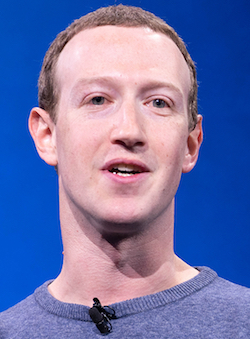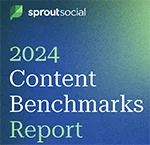So far, the most predictable development of 2020 is the news that Facebook finds itself in yet another public relations crisis.
The world’s largest social media site has long exhibited a hands-off approach when it comes to the political speech that’s allowed on the platform, allowing it to effectively become a hotbed for misleading advertisements, hyper-partisan propaganda, unchallenged political statements and racist content.
And now these policy decisions have the company wending its way through yet another round of negative publicity, a development foregrounded in a history of data breaches and a digital architecture that allowed Russian trolls to circulate fake news in an attempt to sway a presidential election. Somehow, through the intricacies of fate, Facebook is in trouble for doing what Facebook has always done.
Things came to a head during the George Floyd protests in late May, when President Trump posted an admonition to rioters that “when the looting starts, the shooting starts,” a racially-charged phrase that was coined in the late 1960s by former Miami police chief Walter E. Headley.
While Twitter blocked the post for violating that platform’s policies, Facebook refused to take any action whatsoever, with chief Mark Zuckerberg stating—in a Facebook post, naturally—that his company’s “position is that we should enable as much expression as possible unless it will cause imminent risk of specific harms or dangers spelled out in clear policies.”
 Mark Zuckerberg Mark Zuckerberg |
It was later reported that Facebook—and even Zuckerberg himself—allegedly communicated with the White House in an unsuccessful attempt to get Trump to modify the inflammatory post. Hundreds of Facebook employees staged a virtual walkout over the company’s handling of the matter.
In June, a coalition of civil rights groups—including the Anti-Defamation League, the NAACP, Color of Change and others—organized the #StopHateForProfit movement, which effectively urged companies to freeze their paid advertising campaigns on the site until Facebook does something to address the “long history of allowing racist, violent, and verifiably false content to run rampant on its platform.”
The ensuing boycott resulted in major brands such as North Face, Coca-Cola, Unilever, Verizon, Lululemon, Levi Strauss & Co., Ben & Jerry’s, Hershey, Starbucks, Patagonia, Eddie Bauer and approx. 400 others pulling their ad spending on Facebook, some throughout the month of July and others for the rest of the year.
Brands are well-attuned to the fact that activism is the new normal in America, that a growing number of consumers today are motivated to make purchasing decisions that reflect their personal values. As a result, brands are taking increasingly vocal stances on the social and political issues shaping our world, which has found an unlikely tension point in Facebook’s laissez-faire stance on the content that flows over its platform, resulting in what’s arguably the site’s greatest crisis since the Cambridge Analytica scandal in 2018.
In response, competing social media platforms have taken the opportunity to preemptively reevaluate their content policies, effectively positioning themselves as safer alternatives to Facebook. Amazon’s live-streaming platform Twitch suspended President Trump’s account for what it called “hateful conduct.” Social news aggregator Reddit, one of the most popular community-based forums on the Internet, shuttered its pro-Trump “The_Donald” subreddit, as well as approx. 2,000 other communities, and unveiled a new policy intended to prevent users from “attacking marginalized or vulnerable groups.” Even Twitter, Trump’s go-to communications platform, has begun adding disclaimer labels to the President tweets that violate company policies.
In light of the pushback, Facebook has backpedaled on its rules and is now enforcing stricter standards regarding how it moderates misinformation and “problematic” content. On June 26, Zuckerberg announced the site would begin adding labels to posts that violate Facebook’s policies. The social giant also announced it would delete hundreds of accounts tied to groups that “promote violence,” and recently took down several Trump re-election ads containing images that bore an alarming resemblance to symbols once used by the Nazis for identifying political prisoners. Finally, the company committed $200 million in grants, investments and ad credits for black-owned small businesses and non-profits working with black communities.
It remains to be seen whether these steps will be enough to quell critics and stop the advertising hemorrhage, or if Facebook’s newfound beneficence will simply be viewed as a series of performative gestures.
Perhaps the bigger question is whether the growing brand boycott will even move the needle in terms of the platform’s long-term roster of seven million advertisers (forecasts by eMarketer estimate that Facebook will still experience 22 percent growth in worldwide ad revenues this year, or about $85 billion). It stands to reason that until some behavioral change occurs among Facebook’s users, if growing dissatisfaction with the platform and its policies finally causes consumers to leave in droves, attracting advertisers in the future will be the least of Facebook’s worries.


 What if companies could harness the fury of online outrage into a force for good? This is precisely where companies can start turning the trolls into brand champions.
What if companies could harness the fury of online outrage into a force for good? This is precisely where companies can start turning the trolls into brand champions. Audiences interacted with brand content far more often on Facebook and Instagram in 2023 than they did via X (formerly Twitter), according to a report that tracked engagement trends across different social networks.
Audiences interacted with brand content far more often on Facebook and Instagram in 2023 than they did via X (formerly Twitter), according to a report that tracked engagement trends across different social networks. Can public relations help counteract the dissension fostered by the power of digital platforms to spread hate, fear and confusion?
Can public relations help counteract the dissension fostered by the power of digital platforms to spread hate, fear and confusion? The number of Americans who get their news from TikTok has quadrupled in the last three years, according to a recent Pew Research Center report.
The number of Americans who get their news from TikTok has quadrupled in the last three years, according to a recent Pew Research Center report.


 Have a comment? Send it to
Have a comment? Send it to 
No comments have been submitted for this story yet.